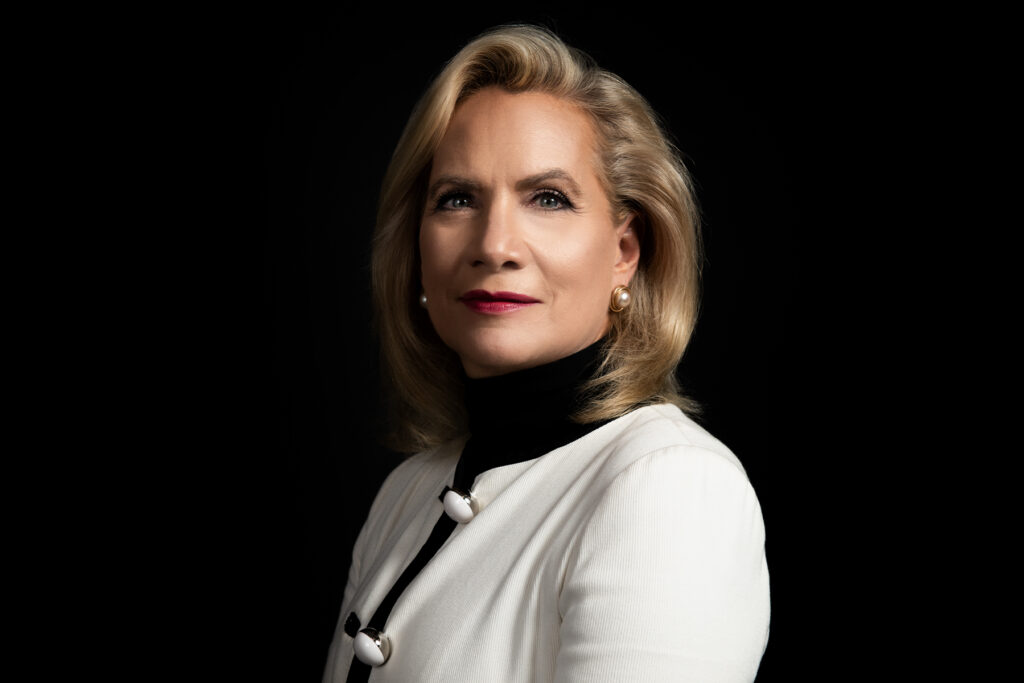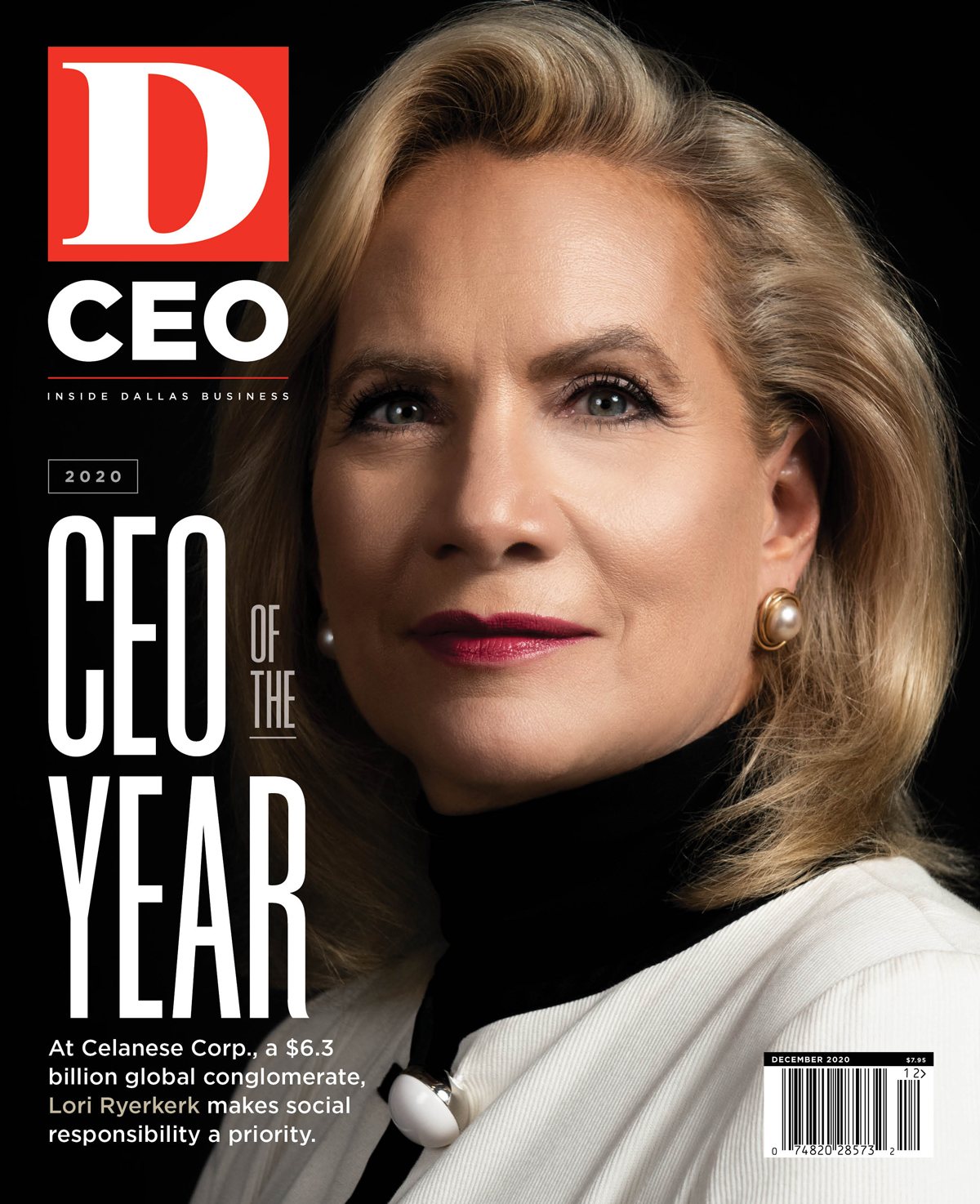In the 1980s, a 21-year-old, blonde-haired woman from Iowa moved to Baton Rouge, Louisiana, to join what’s now Exxon-Mobil as a chemical engineer. “I was the only female hired the year that I joined,” recalls Lori Ryerkerk, a 34-year veteran of the oil and gas industry. “It’s not to say that Exxon isn’t a great company today, but at the time I started there, it was a very old-fashioned, male-dominated company. You didn’t talk about your family, and you certainly didn’t bring your kids into the office.”
At one point, a friend of Ryerkerk’s shared some comments that had been made privately by a senior manager: “Lori is really good,” the exec said. “Hopefully, she won’t mess up and go have children.”
Ryerkerk says she heard just about every comment one could imagine: “‘You shouldn’t be here. You’re taking a man’s job. Why aren’t you at home?’ All that. But you know what? I couldn’t control what anyone else thought about me. I could only control how I chose to respond.”
She responded with sheer grit, putting her head down, and getting to work. It helped that she grew up the youngest of five children, so she had some pretty thick skin, too. The experiences Ryerkerk gained in those early years of her career, both good and bad, formed lasting impressions of the leader she’d strive to one day become. And they powered her ascension to the C-Suite in her trailblazing career at Exxon—then for a couple of years with independent Hess Corp., before leading manufacturing operations of Royal Dutch Shell in Europe and Africa.
“When we engaged with Lori, it became very apparent that she was the one for Celanese.”
Mark Rohr | Former CEO, Celanese Corp.
When former Celanese Corp. CEO Mark Rohr announced his transition into a chairman role in 2019; Ryerkerk was six months into her retirement. “I often joke that’s the only thing I ever failed at,” she says with a laugh. But, with her broad international operations experience, Ryerkerk was the perfect candidate to lead Celanese, an Irving-based conglomerate that makes products used in everything from paints to textiles and generated $6.3 billion in revenue last year.
“We were adamant about finding a CEO who would not only follow the aggressive growth trajectory plan laid out but at the same time, we wanted to find someone who would continue to make the huge strides we’d made in improving diversity and inclusion,” Rohr says. “We spoke to many qualified individuals, but when we engaged with Lori, it became very apparent she was the one for Celanese.”
The initiatives that the company began to implement under Rohr—like being one of the first to come out against the Texas State Legislature’s so-called bathroom bill in 2017 and founding a philanthropic arm to support community engagement deeply—closely aligned with Ryerkerk’s own leadership philosophies and lived experiences. She wanted not only to continue making strides with diversity and inclusion and corporate citizenship but also expand and grow the initiatives because she viewed them as an integral part of the company’s overall success.
That’s one of the reasons Celanese named Lori Ryerkerk its chief executive in April of 2019—and why D CEO magazine named her its CEO of the Year for 2020.
At Exxon, Ryerkerk shot up the corporate ladder, promoted to a supervisor post by the time she was 25. It wasn’t uncommon for her to work 14-hour days. But three years later, when she gave birth to her first child, a daughter, it changed her. “Becoming a mother made me a better leader,” she says. “I realized there’s a lot of other things people could be doing. I also began to value my own time more, and I got a lot better at time management because I wanted to get home.”
By the time her son was born eight years later, the staunch culture had begun to feel even more restrictive. “I felt like I had to leave a very important part of myself at the door,” Ryerkerk says. “I remember after my son was born—he was just a few months old—I had to be back at work for a very important meeting. I couldn’t line up a sitter, so I brought him into the office. I fed him and put him to sleep in a friend’s office.
“There were other times when someone would walk into my office, and my son would be sleeping on the floor on a blanket,” she continues. “When I began doing that, people started realizing I was a real person. I had a family and kids. It made me more of a human in their eyes.”
This was the mid-1990s, and people weren’t talking about authentic leadership yet. But Ryerkerk says her humanity made her more relatable to others on her team. “People who work for you want to know you’re a real person and that you make mistakes and get stressed just like they do,” she says. “Showing that vulnerability isn’t a weakness; it helps people feel comfortable to show their own vulnerabilities.”
She continued to scale the corporate ladder at Exxon, segueing out of P&L and into public affairs and government relations. After a brief stopover with independent exploration and production company Hess Corp., where Ryerkerk says she “learned the value of cash flow,” she joined Shell, where she led a team of 30,000 employees and contractors as executive vice president of global manufacturing.
Since taking charge, Ryerkerk has steered Celanese through a number of big business moves. In April, the company closed on a deal to buy a polymer powders business under the Elotex brand from Nouryon. And in October, it wrapped up the sale of its 45 percent equity stake in Polyplastics to Daicel Corp. for $1.6 billion. Celanese’s third-quarter 2020 results beat analyst expectations, with $1.41 billion in sales and diluted earnings per share of $1.76.
In her first year, Ryerkerk has also led an incredibly robust corporate citizenship platform at the company, encouraging employees to give back to the communities in which they live and work. “Corporate social responsibility is more than just an initiative,” says Mary Elyse Farah, president of the Celanese Foundation. “It is interwoven into the very being of our company culture—and it is a belief that is supported at the very highest level by Lori.”
Celanese and Social Venture Partners Dallas won Collaboration of the Year honors in D CEO’s 2020 Nonprofit and Corporate Citizenship Awards for a capacity-building initiative for area nonprofits. Under Ryerkerk’s direction, the company took nine of its rising stars out of their full-time jobs for four weeks and reassigned them, with pay, to support three South Dallas nonprofits: After8toEducate, Bonton Farms, and Miles of Freedom. The leaders fully immersed themselves in the communities and completed projects that provided long-term impact.
“Lori carries on the legacy of corporate social responsibility at Celanese—and makes it her own,” says Tony Fleo, CEO of Social Venture Partners Dallas. “For us, it makes helping the community much easier to have such a willing partner and champion in Lori. It’s a tribute to a person whose heart is in the right place when it comes to the community and the impact she can have.”
Another area of focus for Celanese is its sustainability efforts. In 2020, the U.S. Environmental Protection Agency recognized the company as an Energy Star Partner for a fifth consecutive time, and with Sustained Excellence recognition for a third time. And last year, under Ryerkerk’s guidance, Celanese received a perfect score on the Human Rights Campaign’s Equality Index of corporate diversity and inclusion for the second year in a row.
“Employees want their leaders to be visible,” Ryerkerk says. “They want their leaders to be authentic, speak their language, and relate to what they’re going through. People want their leaders to care about social issues and sustainability. That wasn’t the expectation 30 years ago when I was starting out.”
In April 2020, a year after Ryerkerk was named president and CEO, the Celanese board elected to add chairman to her title. She replaced Rohr, who retired in June 2020 after 13 years with the company. It was a ringing endorsement of her performance.
Despite her remarkable career and impressive achievements, Ryerkerk reminds herself to stay humble. “My son is 22; he’s now a senior in college,” she says. “My title means nothing to him. I’m just his mom. A few months ago, he came into the office—and he’s tall, so he writes on my whiteboard, ‘Too tall for you’ with a smiley face on the very top where I can’t reach it. It is still there all these months later.
For me, it is a great reminder that I’m still just a mom. We all need that reminder to stay humble,” Ryerkerk says. “At the end of the day, we all get out of bed, and we come to do our job to the best of our abilities. And that’s all we can really ask of people.”
Get the D CEO Newsletter
Author







